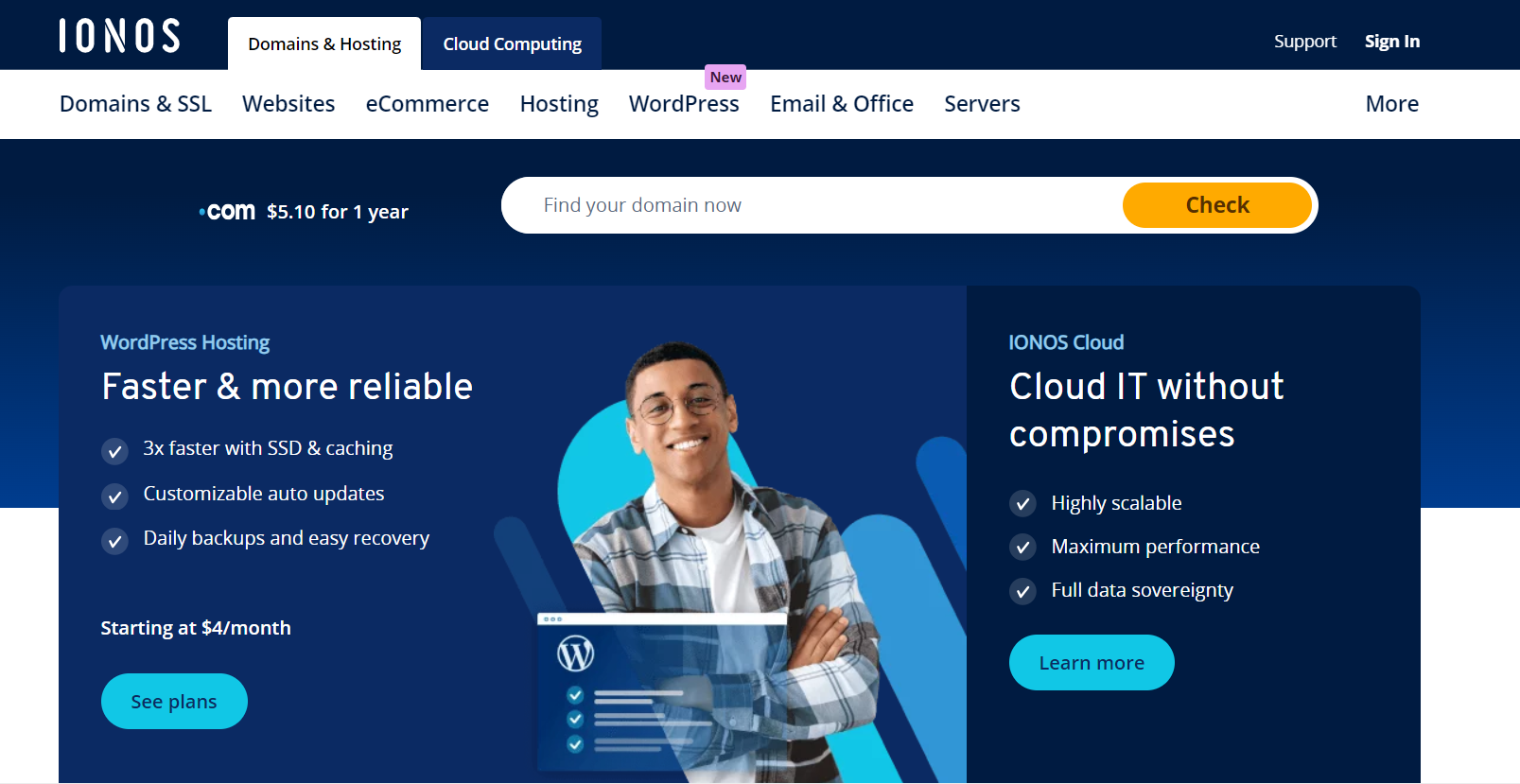What is Cloud Hosting?
Cloud hosting is a type of web hosting that uses multiple servers to balance the load and maximize uptime. Rather than relying on a single server, your website can tap into a “cluster” that uses resources from a centralized pool. This method enhances reliability, as the failure of one server doesn’t lead to downtime for your site.
What are the benefits of Cloud Hosting?
1. Cost Efficiency
Cloud hosting is generally more cost-effective than traditional hosting methods. You pay only for the resources you use, which can significantly reduce costs, especially for smaller businesses or websites with variable traffic.
2. Scalability
Cloud hosting allows you to easily scale your resources up or down based on your needs. This flexibility ensures that your website can handle traffic spikes without compromising performance. Windows hosting is also compatible with many cloud platforms, making it a reliable option for businesses that rely on Microsoft-based applications.
3. Availability
With cloud hosting, your website’s resources are distributed across multiple servers. This redundancy ensures high availability and reliability, as the failure of one server doesn’t impact your site’s uptime.
4. Security
Cloud hosting providers invest heavily in security measures to protect data. These measures include data encryption, firewalls, and regular security audits to ensure your data is safe from breaches and attacks.
How Does Cloud Hosting Work?
Cloud hosting operates on a virtualized server infrastructure. Here’s how it works:
- Resource Pooling: Resources like CPU, RAM, and storage are pooled from multiple physical servers.
- Virtualization: These resources are distributed to virtual machines (VMs) that run your applications.
- Load Balancing: The system automatically balances the load across servers to ensure optimal performance and uptime.
- Redundancy: Data is mirrored across multiple servers to ensure high availability and disaster recovery.
Types of Cloud Hosting
-
Private Cloud
A private cloud is a cloud infrastructure dedicated exclusively to a single organization. It offers enhanced security and control but can be more expensive than public cloud solutions.
-
Public Cloud
In a public cloud, resources are shared among multiple users. It’s cost-effective and scalable, but there may be concerns about data privacy and security.
-
Hybrid Cloud
A hybrid cloud combines private and public cloud elements. It offers the flexibility to keep sensitive data in a private cloud while leveraging the cost benefits and scalability of the public cloud for less sensitive operations.
-
Managed Cloud
Managed cloud services provide expert management and maintenance of your cloud infrastructure, allowing you to focus on your core business activities while the provider handles the technical aspects. For organizations that require maximum performance and full hardware control, a bare metal cloud solution combines the raw power of dedicated servers with the scalability and flexibility of cloud hosting, making it ideal for high-performance applications and workloads.
9 Best Cloud Hosting Provider
1. Dreamhost – Best For Small Business Dreamhost – Best For Small Business
Dreamhost – Best For Small Business
Overview Dreamhost offers robust cloud hosting services tailored for small businesses. It’s known for its ease of use, scalability, and excellent customer support.
Specification
- Unlimited bandwidth and storage
- SSD storage for fast performance
- Scalable resources
- Free SSL certificates
- 24/7 support
Reason to Buy
- Easy to set up and manage
- Affordable pricing
- Great customer support
Reason to Avoid
Limited advanced features compared to some competitors
2. IONOS – Cheapest Hosting IONOS – Cheapest Hosting
IONOS – Cheapest Hosting
Overview IONOS provides affordable cloud hosting solutions suitable for small to medium-sized websites. It offers a range of plans to fit various needs and budgets.
Specification
- Competitive pricing
- Scalable resources
- Free domain and SSL certificate
- 24/7 customer support
Reason to Buy
- Very affordable
- User-friendly interface
- Good customer support
Reason to Avoid
Limited features in lower-tier plans
3. OVHCloud – Best for Customization

Overview OVHCloud stands out for its highly customizable cloud hosting solutions. It’s ideal for businesses that require tailored hosting environments.
Specification
- Extensive customization options
- High-performance SSD storage
- Robust security features
- Global data centers
Reason to Buy
- High level of customization
- Strong security features
- Excellent performance
Reason to Avoid
Can be complex for beginners
4. Cloudways – Best Cloud Hosting Cloudways – Best Cloud Hosting
Cloudways – Best Cloud Hosting
Overview Cloudways offers a managed cloud hosting platform known for its performance, scalability, and user-friendly interface. It supports multiple cloud providers, including AWS, Google Cloud, and DigitalOcean.
Specification
- Managed services
- Multiple cloud infrastructure options
- SSD-based hosting
- Free SSL certificates
- 24/7 expert support
Reason to Buy
- High performance and scalability
- User-friendly platform
- Excellent customer support
Reason to Avoid
Pricing can be higher than some competitors
5. SiteGround – Best Green Cloud Host SiteGround – Best Green Cloud Host
SiteGround – Best Green Cloud Host
Overview SiteGround is known for its commitment to sustainability and environmentally friendly hosting solutions. It offers reliable cloud hosting with a focus on eco-friendly practices.
Specification
- Green data centers
- SSD storage
- Free daily backups
- Enhanced security features
- 24/7 support
Reason to Buy
- Environmentally friendly
- Reliable and secure
- Excellent customer support
Reason to Avoid
- Higher price point for green hosting
Conclusion
Choosing the right cloud hosting provider depends on your specific needs and budget. The top nine providers for 2024—Dreamhost, IONOS, OVHCloud, Cloudways, and SiteGround—each offer unique benefits, from cost efficiency to customization and sustainability. Evaluate your requirements to select the best provider that aligns with your business goals and ensures optimal performance, security, and scalability.



